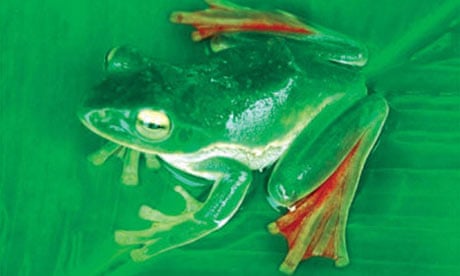Starting Monday, celebrations and events across the world will highlight the beginning of the UN's Year of International Biodiversity and the loss of our richly varied flaura and fauna, which is estimated to be as high as 1,000 times the natural rate as a result of human activities.
Ahmed Djoghlaf, the general secretary of the treaty signed by 192 countries since 1992 to protect biodiversity, is blunt about efforts to preserve the health of biodiversity since the Rio Earth summit 18 years ago. Governments worldwide have failed to meet the treaty's target of reversing the trend for declining biodiversity, he says, and urgently need momentum to hit its targets for 2020.
Biodiversity is integral to our daily lives. It is not about the loss of exotic species which have been the focus of conservation activities by the foundations and trusts of wealthy nations. It is about the vital resources which underpin the wealth and health of the world's poor and that provide the vital needs for the heath and wellbeing of us all.
The equivalent to the Stern report for biodiversity is called The Economics of Ecosystems and Biodiversity (TEEB). It warns that our neglect of the natural services provided by biodiversity is an economic catastrophe of an order of magnitude greater than the global economic crisis. Year on year, the irreversible loss of natural diverse genetic resources impoverishes the world and undermines our ability to develop new crops and medicines, resist pests and diseases, and maintain the host of natural products on which humans rely.
Equally significant, are the vital natural services that the world's ecosystems provide. These include providing vital oxygen, decomposing waste, removing pollutants, providing the natural buffers that help manage drought and flood, protect soil from erosion, ensure soil fertility, and provide breeding nurseries to maintain fish ocean stocks. The list goes on, and among these immeasurable vital functions of nature is of course its ability to absorb carbon dioxide. The ability of forests, bogs and salt marches, tundra, coral and ocean plankton to sequester carbon should be our greatest ally in managing the increased emissions of fossil fuel activity – a key theme of the climate negotiations in Copenhagen last month.
Rather than seeing biodiversity and ecological mechanisms being eroded, we need to see a massive effort towards finding a more effective sustainable relationship between human society and nature. This is not a scientific or environmental issue, it is a social question and an ethical one about what our generation leaves for those in the future.
